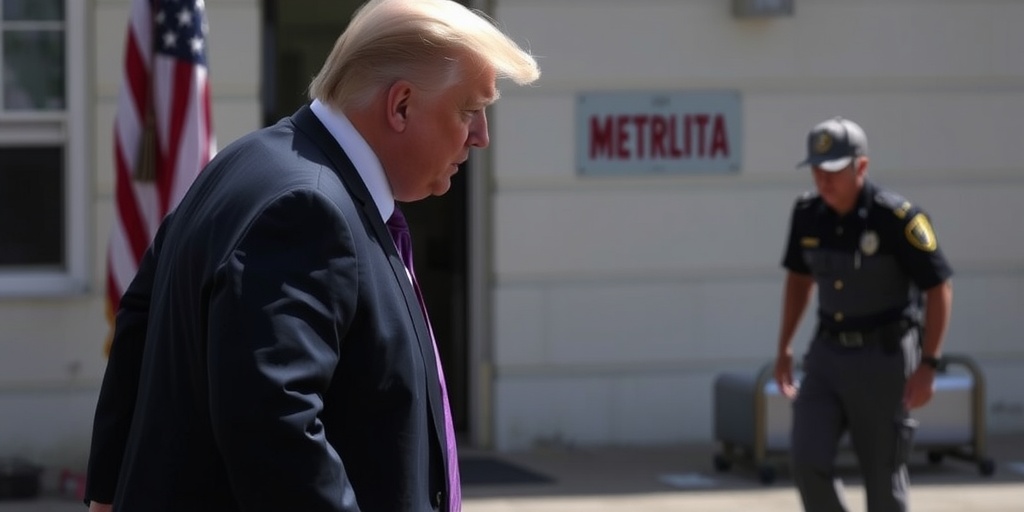Now Reading: Trump Administration’s Deportation of Migrant to El Salvador
-
01
Trump Administration’s Deportation of Migrant to El Salvador
Trump Administration’s Deportation of Migrant to El Salvador

The Troubling Case of Kilmar Armando Abrego Garcia: A Fight for Justice and Humanity
Kilmar Armando Abrego Garcia, a 29-year-old Salvadoran migrant and father, has found himself at the center of a chilling legal and humanitarian crisis. His story began six years ago in suburban Maryland, where he dropped off his pregnant girlfriend at work and headed to a local Home Depot, seeking day labor opportunities. His pursuit of a better life took a harrowing turn last month when he was accused of belonging to a dangerous street gang and subsequently deported to a prison in El Salvador, despite an American immigration judge’s ruling that he should be allowed to remain in the U.S. due to fears of torture in his home country.
Abrego Garcia’s deportation on March 15 came as a shock, even more so when the Trump administration acknowledged that it was an “administrative error.” Despite this admission, the administration has stated that retrieving Mr. Abrego Garcia from the Salvadoran prison where he was sent is beyond their control, leaving his family and legal team in a state of desperation.
Legal representatives for Abrego Garcia have filed an emergency request with a federal judge in Maryland, who is expected to deliberate on the matter. They argue that the case transcends Abrego Garcia’s personal ordeal and carries significant implications for all migrants navigating the U.S. immigration system. They contended that if the government’s actions regarding deportations are allowed to continue unchecked, it would render immigration court rulings meaningless.
Abrego Garcia’s journey to the United States was marked by hardship and violence. He fled El Salvador, where his family faced constant threats and extortion from a local gang, Barrio 18, despite his father’s previous role as a patrolman. In 2011, seeking refuge, he arrived in Maryland, where he eventually married Jennifer Vasquez Sura, a U.S. citizen. Together, they started a family while Abrego Garcia worked as a metal worker and attended the University of Maryland.
In March 2019, his life took a drastic turn when he was arrested while searching for work at a Home Depot. Authorities questioned him about gang affiliations, despite his denial and the absence of any charges or convictions. He was subsequently detained by ICE, leaving his wife anxious and confused at home.
Over the next six months, the immigration court proceedings centered on the claim that Abrego Garcia was a member of the notorious MS-13 gang. The federal agents based their accusations on flimsy evidence, including a dubious assertion from an informant and the argument that wearing Chicago Bulls merchandise implicated gang ties. Nevertheless, in October 2019, Abrego Garcia won his case with the grant of “withholding from removal," allowing him to remain in the U.S. due to credible fears of violence in El Salvador.
The following years were marked by a semblance of normalcy for Abrego Garcia and his family. He continued to work, took classes, and had another child diagnosed with autism. They believed they had escaped the specter of gang-related accusations, with no further incidents up until last month.
However, on March 12, 2025, after concluding a work shift, Abrego Garcia was unexpectedly detained again by immigration agents who informed him that his protected status had been revoked. In a heartbreaking moment, he was handcuffed and taken away from his family while his wife, Ms. Sura, was left to hurriedly arrange care for their youngest child.
The situation grew increasingly severe, with Abrego Garcia being transferred through multiple detention centers without receiving an opportunity to present his case before an immigration judge. His case became intertwined with the Trump administration’s controversial initiative to deport Venezuelan migrants under the Alien Enemies Act. Tragically, this culminated in Abrego Garcia’s deportation to a high-security prison in El Salvador known as the Terrorism Confinement Center.
Since being deported, Ms. Sura has seen only a single photo of her husband among a group of deportees; the image showed them in distressing conditions with their identities obscured. In a moment of sheer devastation, she recognized familiar tattoos on one of the men in the image as belonging to her husband.
Abrego Garcia’s case has sparked widespread condemnation and raised critical questions about the integrity of the U.S. immigration system and the treatment of migrants. As his legal team continues to fight for his return, advocates emphasize the urgent need for policies that prioritize human rights and recognize the complexities of individual cases over blanket deportation strategies. The outcome of this legal battle not only weighs heavily on Abrego Garcia’s future but also serves as a litmus test for the broader humanitarian principles within the U.S. immigration framework.
Stay Informed With the Latest & Most Important News
Previous Post
Next Post
-
 01New technology breakthrough has everyone talking right now
01New technology breakthrough has everyone talking right now -
 02Unbelievable life hack everyone needs to try today
02Unbelievable life hack everyone needs to try today -
 03Fascinating discovery found buried deep beneath the ocean
03Fascinating discovery found buried deep beneath the ocean -
 04Man invents genius device that solves everyday problems
04Man invents genius device that solves everyday problems -
 05Shocking discovery that changes what we know forever
05Shocking discovery that changes what we know forever -
 06Internet goes wild over celebrity’s unexpected fashion choice
06Internet goes wild over celebrity’s unexpected fashion choice -
 07Rare animal sighting stuns scientists and wildlife lovers
07Rare animal sighting stuns scientists and wildlife lovers





















